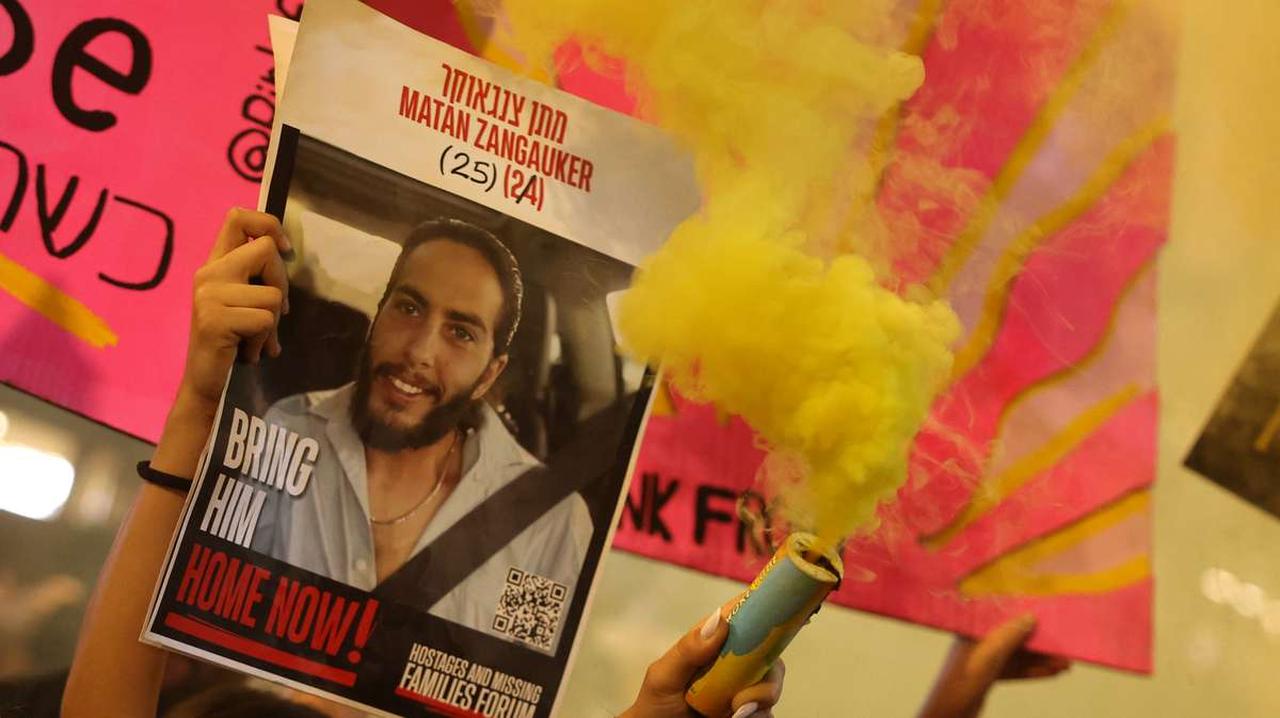
Public confidence in Israeli Prime Minister Benjamin Netanyahu, his government, and the military has dropped significantly, according to a recent poll published by the Institute for National Security Studies (INSS).
The survey, conducted between July 24 and 28 with 958 respondents, showed that trust in Netanyahu fell from 35% in June to 30% by the end of July. Meanwhile, 76% of respondents said they either had little or no trust in the government.

Trust in the Israeli army also declined, from 83% at the end of June to 77% in late July. Confidence in Chief of Staff Eyal Zamir dropped from 69% to 62%, and belief in the reliability of the Israeli army spokesperson’s statements fell to 56.5% from 63%.

According to the poll, 61% of Israelis believe the army’s current approach in Gaza is not helping to secure the release of Israeli hostages held by Hamas.
A further 40.5% said the military is contributing to neither of its two declared objectives: bringing hostages home and dismantling Hamas. Only 25.5% said the Israeli army is achieving both goals, while 20.5% believe the operations are only effective against Hamas.
| Topic | Previous (%) | Current (%) | Change / Notes |
|---|---|---|---|
| Trust in Prime Minister Netanyahu | 35 | 30 | Decrease |
| Little or no trust in the government | – | 76 | High level of distrust |
| Trust in the Israeli army | 83 | 77 | Decrease |
| Trust in Chief of Staff Eyal Zamir | 69 | 62 | Decrease |
| Trust in military spokesperson | 63 | 56.5 | Decrease |
Israel has repeatedly stated its twin goals in the war on Gaza: eliminating Hamas and securing the return of hostages. However, only 53% of those surveyed believe these goals will be fully or mostly achieved.
In contrast, 42% expressed doubt, saying the objectives would be only partially met or not at all.

When asked who is to blame for the failure to reach a hostage release deal, 52% of respondents pointed to the Israeli government, while 45% blamed Hamas.
Israel recently withdrew from indirect negotiations with Hamas in Doha, citing differences over the terms of withdrawal from Gaza, ending the war, and allowing humanitarian aid.
Half of those surveyed said they would prefer post-war Gaza to be governed by a technocratic administration unaffiliated with either Hamas or Fatah.
Meanwhile, 27% supported Israeli military control, and just 12% favored handing over authority to the Palestinian Authority.

Prime Minister Netanyahu is currently facing corruption charges in domestic courts. The International Criminal Court has also been asked to issue an arrest warrant against him over alleged war crimes in Gaza.
Since the start of the war on Oct. 7, 2023, Israel’s military campaign—backed by the United States—has led to the deaths or injuries of over 209,000 Palestinians, most of them women and children. More than 9,000 people remain missing.
Despite international pressure and rulings from the International Court of Justice calling for a cease-fire, Israel has continued its operations in Gaza, where restrictions on food, water, and medical aid have deepened the humanitarian crisis. Many civilians, including children, have reportedly died from starvation and disease.